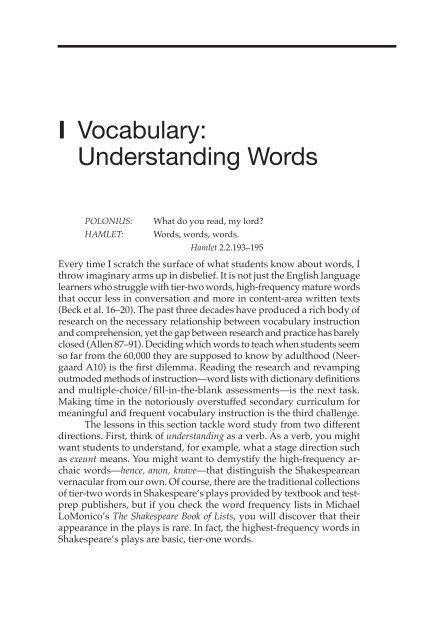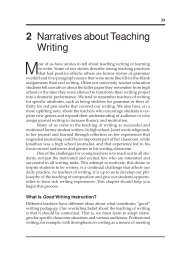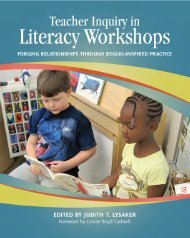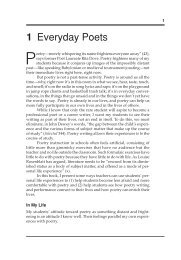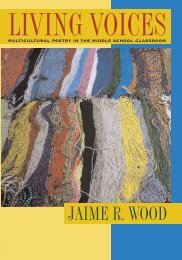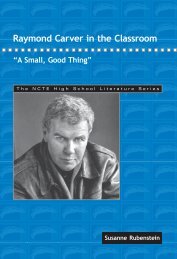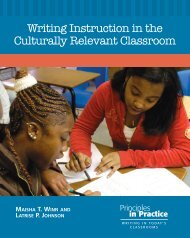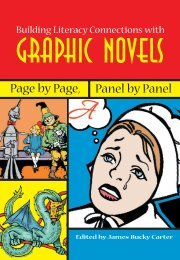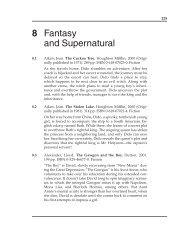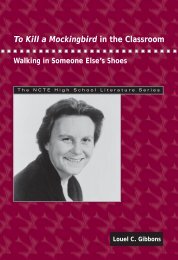reading Shakespeare
reading Shakespeare
reading Shakespeare
You also want an ePaper? Increase the reach of your titles
YUMPU automatically turns print PDFs into web optimized ePapers that Google loves.
I Vocabulary:<br />
Understanding Words<br />
POLONIUS:<br />
HAMLET:<br />
What do you read, my lord<br />
Words, words, words.<br />
Hamlet 2.2.193–195<br />
Every time I scratch the surface of what students know about words, I<br />
throw imaginary arms up in disbelief. It is not just the English language<br />
learners who struggle with tier-two words, high-frequency mature words<br />
that occur less in conversation and more in content-area written texts<br />
(Beck et al. 16–20). The past three decades have produced a rich body of<br />
research on the necessary relationship between vocabulary instruction<br />
and comprehension, yet the gap between research and practice has barely<br />
closed (Allen 87–91). Deciding which words to teach when students seem<br />
so far from the 60,000 they are supposed to know by adulthood (Neergaard<br />
A10) is the first dilemma. Reading the research and revamping<br />
outmoded methods of instruction—word lists with dictionary definitions<br />
and multiple-choice/fill-in-the-blank assessments—is the next task.<br />
Making time in the notoriously overstuffed secondary curriculum for<br />
meaningful and frequent vocabulary instruction is the third challenge.<br />
The lessons in this section tackle word study from two different<br />
directions. First, think of understanding as a verb. As a verb, you might<br />
want students to understand, for example, what a stage direction such<br />
as exeunt means. You might want to demystify the high-frequency archaic<br />
words—hence, anon, knave—that distinguish the <strong>Shakespeare</strong>an<br />
vernacular from our own. Of course, there are the traditional collections<br />
of tier-two words in <strong>Shakespeare</strong>’s plays provided by textbook and testprep<br />
publishers, but if you check the word frequency lists in Michael<br />
LoMonico’s The <strong>Shakespeare</strong> Book of Lists, you will discover that their<br />
appearance in the plays is rare. In fact, the highest-frequency words in<br />
<strong>Shakespeare</strong>’s plays are basic, tier-one words.


